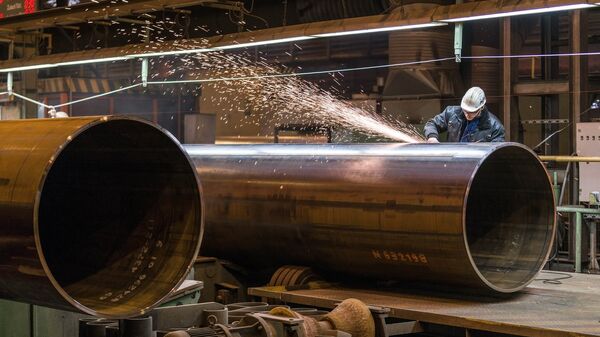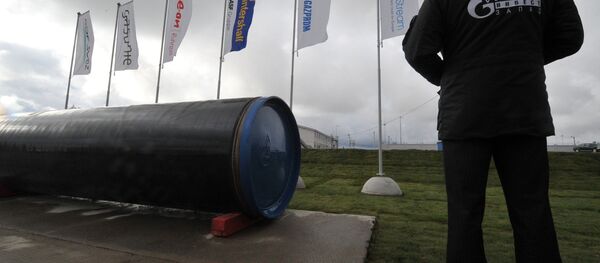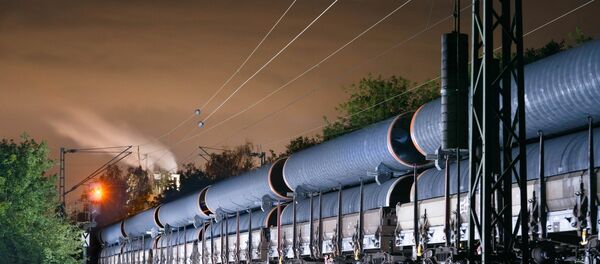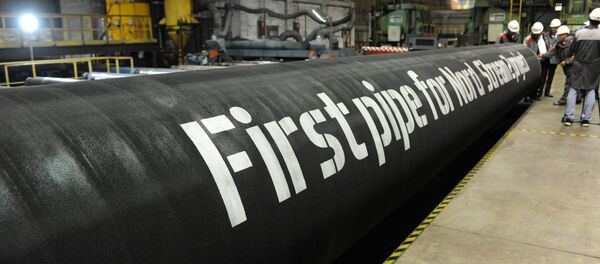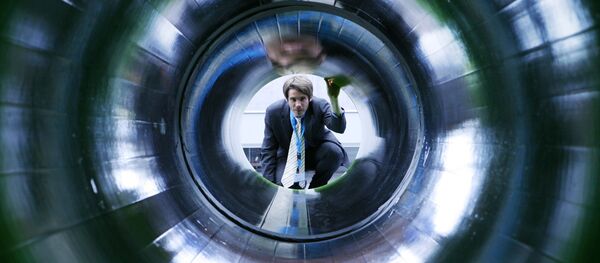Just ahead of Sunday's Swedish parliamentary elections, Sveriges Radio spoke to politicians from across the political spectrum, all of them taking a firm stance against the energy pipeline that's being built through Sweden's exclusive economic zone in the Baltic Sea by Gazprom and a consortium of Western European energy concerns.
"Nord Stream 2 is a bad proposal, both in terms of energy policy, and in terms of environmental and security policy," Karin Enstrom, opposition Moderate Party spokesperson on EU issues, told the public broadcaster.
Jonas Eriksson, a member of the ruling coalition Green Party's council for EU affairs, complained that Stockholm, which approved the construction of Nord Stream 2 earlier this summer, has had little luck using international legislation to stop the project. Eriksson requested that the European Commission take it upon itself to amend legislation to allow the project to be stopped.
Sweden, one of the final holdouts against Nord Stream 2 along with Denmark, formally approved the Nord Stream 2's construction on June 7.
Politicized Opposition Nothing New
Alexander Gulkov, an energy geopolitics expert and professor at Russia's Far Eastern Federal University, has said that the Swedish politicians' concerns are anything but new and that they echo US-supported political efforts against Russian energy in Europe going back to the days of the Cold War.
"The US is doing everything it can to prevent this project from being realized; the same was the case in the 1970s, when the first gas pipeline from the USSR to Western Europe was being built. There's nothing new here. Then too Moscow faced opposition from the US," the professor told Sputnik.
As for the Swedish politicians' environmental concerns, Gulkov said this was a nonstarter. "Everyone understands that the environmental damage from this project is extremely small, practically nonexistent. This is a made-up problem. The main obstacle here is really politics. Maybe this will result in some delays, but I'm fully convinced that the project's schedule will not be disrupted."
Before Nord Stream 2's construction could start, the project was subjected to environmental impact assessments by each of the countries whose waters or exclusive economic zones it passes through, including Russia, Finland, Sweden, Denmark and Germany. These assessments are required for construction and operation permits to be approved. Nord Stream 2 AG submitted environment-related paperwork to Denmark's Energy Agency last month, with other countries already granting their approval.
Project Reaches 'New Stage'
Alexei Zudin, an international affairs analyst, said that the start of work through Finnish waters would put the project in a new stage.
"Finland was a part of the project from the very start, and there were no serious objections or problems by Helsinki regarding its participation. However, given the very serious political struggle which has unfolded around the project, the start of work in Finland is a confirmation that the project is alive and being realized. Effectively, Nord Stream 2 is passing from the design stage to reality. In that sense, the news is both significant and symbolic," he stressed.
Once completed, the $11 billion pipeline venture will help ensure European energy security amid rising demand and falling European gas output, and serve as insurance against any effort by transit states to cut off supplies. Russian gas is also estimated to be considerably cheaper than its alternatives, including LNG supplies that Washington has been attempting to sell to the Europeans.
The views expressed by Dr. Alexander Gulkov and Mr. Alexei Zudin are those of the analysts and do not necessarily reflect those of Sputnik.
